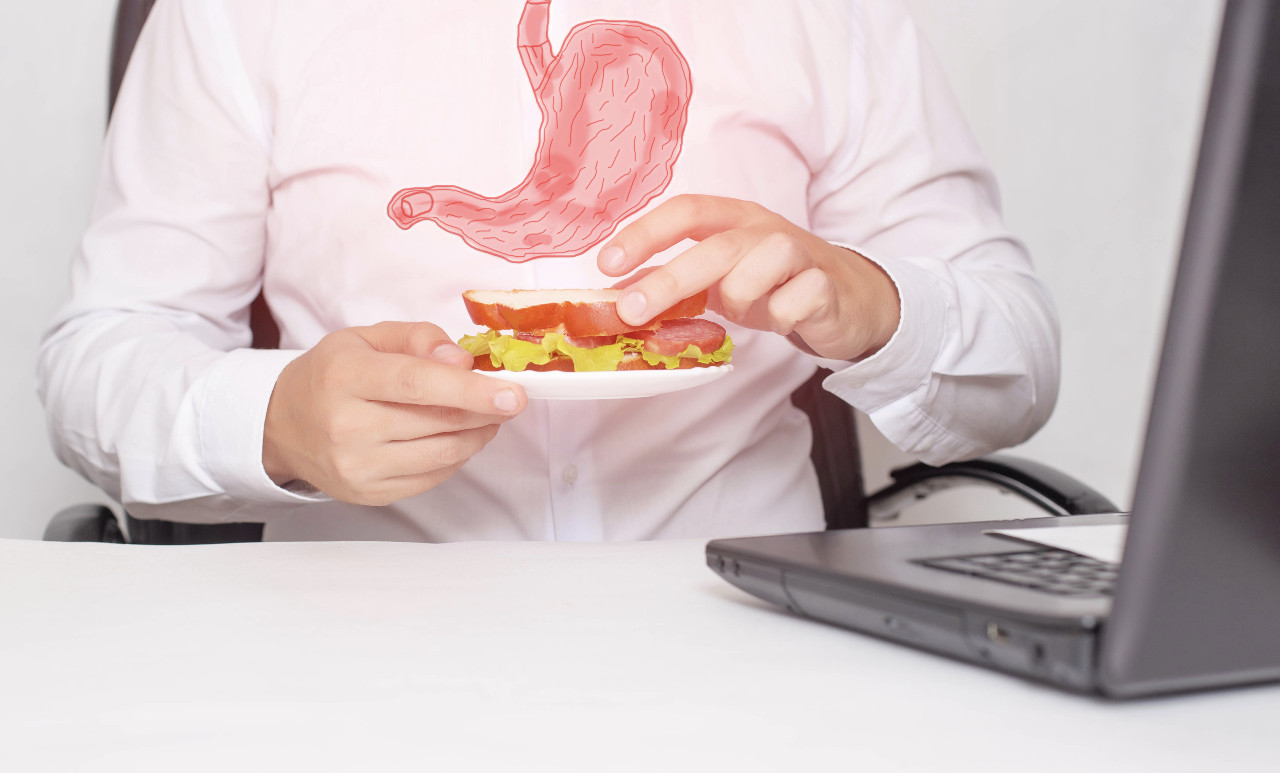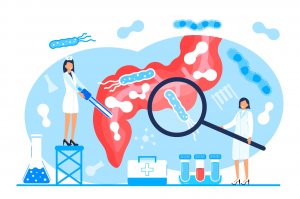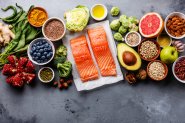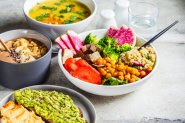Advertising Disclosure
What to eat if you have a stomach ulcer

Stomach ulcers, aka peptic ulcers, can be extremely uncomfortable and painful. And while, contrary to popular belief, eating certain foods is not the cause of ulcers — medications and bacterial infections typically are — your diet can potential impact how you feel when you have an ulcer. If you have a stomach ulcer, you’ve probably asked, “What are the best foods to eat if I have a stomach ulcer?” Or, more crucially, “What foods should I avoid if I have stomach ulcers?” Read on for answers to both of those questions and more. And as always, consult your physician for treatment if you are suffering from ulcers or any medical problem.
Diet to manage stomach ulcers
When managing a medical condition it is important to think about the course of treatment. Remembering to keep a balanced diet is part of the path towards healing your stomach ulcers. Why? Eating a healthy diet is a key way to support your immune system’s ability to protect and restore your stomach (and the rest of your body).
What are the best foods to eat if I have a stomach ulcer?
1. Food high in fiber, such as apples, pears, oatmeal, spinach, green beans and carrots.
Fiber-rich foods are among the best foods to each if you have a stomach ulcer ±and to prevent stomach ulcers if you don’t have them yet. Research indicates it’s common for people with a lack of fiber in their diets to be more prone to ulcers. Fiber is good at acting as a buffer against bile acids that build up in the stomach and intestinal track, leading to less bloating and ultimately less discomfort.
2. Foods rich in antioxidants, such as blueberries, bell peppers, strawberries, pecans, artichokes, goji berries, raspberries, kale and beans.
Antioxidants are also important for the stomach. First of all because antioxidants are helpful in keeping your immune system healthy and strong to protect your body in general. Specifically for stomach ulcers, recent studies suggest that antioxidant-rich foods may be helpful in preventing or fighting infections of H. pylori, the bacteria known to play a role in causing stomach ulcers.
3. Foods with natural probiotics or fermentation, such as yogurt, miso, kimchi, sauerkraut, kombucha and tempeh.
With dealing in ulcers caused by H. pylori bacteria, there have been studies done to indicate the positive effect probiotics have fighting against it, specifically in adults. Probiotics do not completely eliminate the bacteria, but do help to reduce the infection rate. For more on how probiotics help you to maintain a healthy gut microbiome, check out our guide to the best ways to improve gut health.
4. Certain kinds of honey.
Most sugar is not recommended for healing a stomach ulcer, but honey is one exception. One study showed that oak tree and manuka honeys are effective at both preventing the stomach-ulcer-causing H. pylori bacteria from reproducing as well as inhibiting its activity. The study demonstrating that taking these honeys once a week lowered the occurance of H. pylori infection.
5. Oils such as blackcurrant seed oil, fish oil, carrot seed oil and grapefruit seed oil.
These oils specifically contain omega-3 and omega-6 fatty acids, those healthy, polyunsaturated fatty acids that we read and hear so much about. What does that mean for your stomach ulcer? Studies show that those fatty acids help fight against H. pylori infection by limiting the ulcer-causing bacteria’s reproduction in your gut.
6. Cruciferous vegetables, especially broccoli.
Cruciferous vegetables such as broccoli, cabbage, cauliflower and kale contain a compound called sulforaphane, which is effective at inhibiting the growth of the H. pylori bacteria. Broccoli in particular boasts the highest concentration of sulforaphane among these foods. In a study, people who ate 70 grams per day of broccoli sprouts saw a significant decrease of the ulcer-causing bacteria in their gut microbiome.
7. Milk, eggs and meat.
Many people who develop stomach ulcers wind up deficient in vitamin B12. This is because ulcer patients commonly use antacids to relieve their symptoms, and antacids make B12 less available in the body than normal. Stomach ulcers aside, B12 deficiency can lead to all kinds of health problems both moderate to severe. B12 supplements are one option to treat the issue, but the vitamin is best absorbed through food, Milk, eggs and meat are all rich in B12, so these foods are excellent sources for those without dietary restrictions to them.
What foods should I avoid if I have stomach ulcers?
1. Foods that are highly acidic, such as lemons, oranges and grapefruit.
A major cause of stomach ulcers is when acid in your digestive tract eats away at the inside of your stomach or small intestine. This happens because there is too much acid in your system or too little of the mucus lining that normally protects against acid. Either way, eating foods high in acidity when you already have a stomach ulcer will irritate it more. Therefore, it’s best to avoid highly acidic food until your stomach heals.
2. Food high in fat, such as gravy, cream soups, fried food and rich salad dressings.
Eating high-fat food is known to cause your stomach acid to increase and can trigger stomach reflux. Your goal should be to avoid making your stomach ulcers worse by not adding more acid to your system, so it’s best to cut out those fatty foods.
3. Hot spices such a red chilies, curry powder, mustard and black pepper.
A lot of people still believe that eating spicy foods is a cause of stomach ulcers. This is simply hot true. However, it certainly is true for many that spicy foods can exacerbate the severity of stomach ulcer symptoms. Spicy foods also can lead to reflux and heartburn, which can add to your discomfort.
4. Coffee and soda.
You may be thinking that the culprit here is caffeine, but it’s not. It’s acid once again. Coffee and soda, even decaf coffee and caffeine-free soda, contain a lot of acid. And since excess stomach acid both causes and worsens stomach ulcers, avoid these beverages until you heal.






